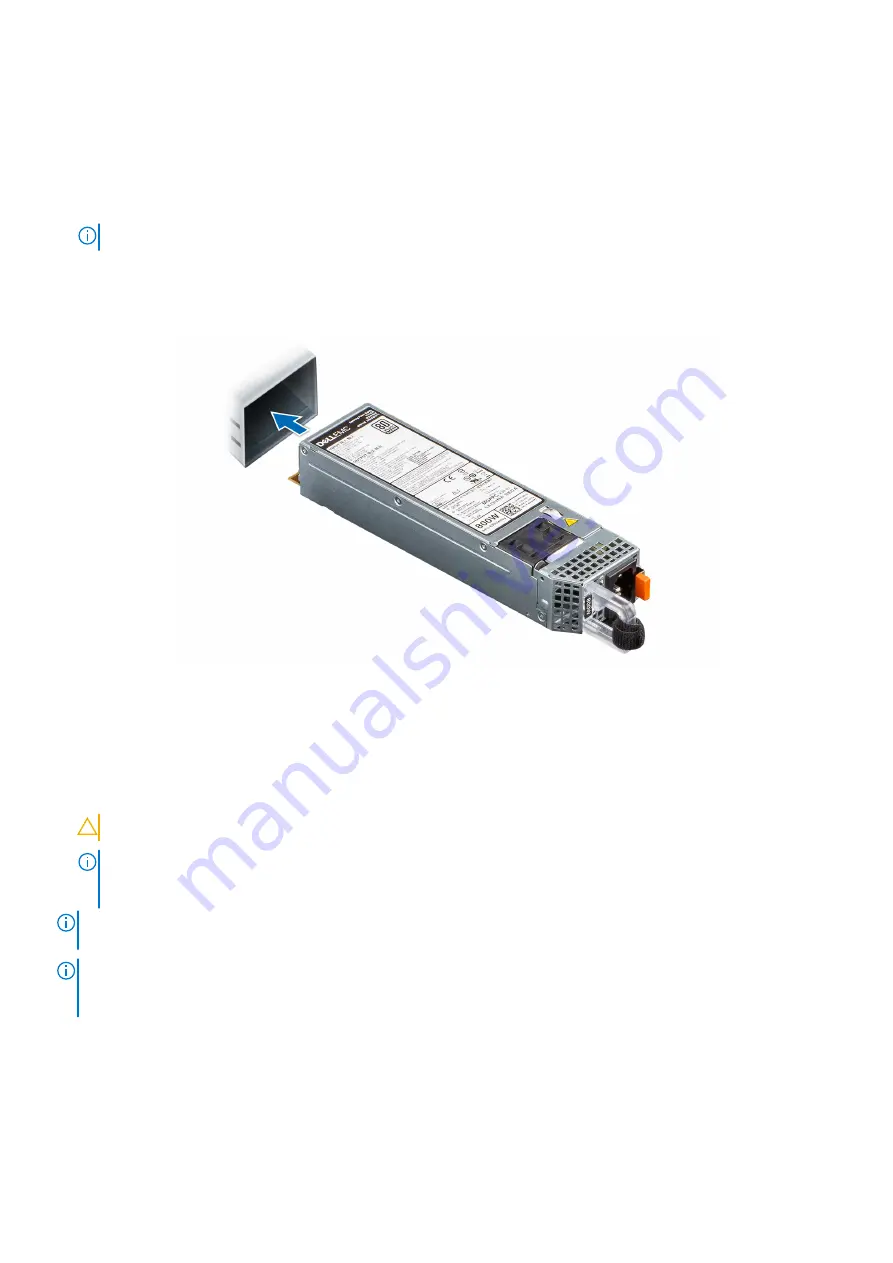
Installing a power supply unit
Prerequisites
1. Follow the safety guidelines listed in the
.
2. For systems that support redundant PSU, ensure that both the PSUs are of the same type and have the same maximum
output power.
NOTE:
The maximum output power (shown in watts) is listed on the PSU label.
3. Remove the
.
Steps
Slide the PSU into the PSU bay until the release latch snaps into place.
Figure 97. Installing a power supply unit
Next steps
1. If you have unlatched the cable management arm, relatch it. For information about the cable management arm, see the
system’s rack documentation at
https://www.dell.com/poweredgemanuals
.
2. Connect the power cable to the PSU, and plug the cable into a power outlet.
CAUTION:
When connecting the power cable to the PSU, secure the cable to the PSU with the strap.
NOTE:
When installing, hot swapping, or hot adding a new PSU, wait for 15 seconds for the system to recognize the
PSU and determine its status. The PSU redundancy may not occur until discovery is complete. The PSU status indicator
turns green to indicate that the PSU is functioning properly.
NOTE:
For certain premium configurations with high power consumption, system PSU might stay with 2+0 mode only, 1+1
redundant mode is not available.
NOTE:
While replacing the hot swappable PSU, after next server boot; the new PSU automatically updates to the same
firmware and configuration of the replaced one. For more information about the Part replacement configuration, see the
Lifecycle Controller User's Guide
at
https://www.dell.com/idracmanuals
Installing and removing system components
93
Summary of Contents for PowerEdge R450
Page 15: ...Figure 11 Memory information Dell EMC PowerEdge R450 system overview 15 ...
Page 16: ...Figure 12 Service information electrical overview 16 Dell EMC PowerEdge R450 system overview ...
Page 17: ...Figure 13 Service information mechanical overview Dell EMC PowerEdge R450 system overview 17 ...
















































